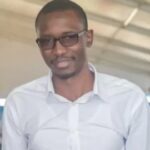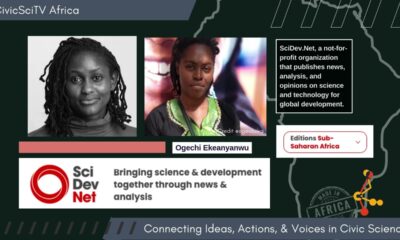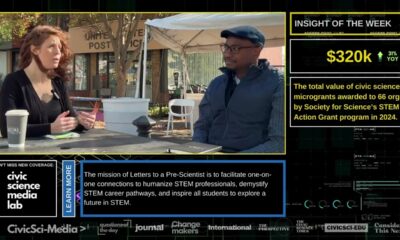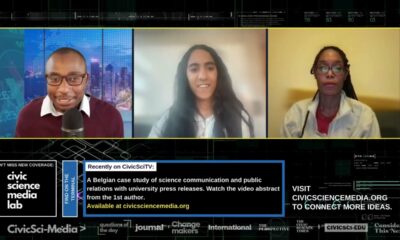Civic Science Observer
Low cost digital workspaces to supplement science education in Africa
In the developing world, science education is vital as countries strive to modernize their economies and improve conditions for their citizens. In Kenya, and across Africa’s 54 countries, similar challenges exist for science education as noted by (see Ferreira et al. Palgrave Commun, 5, 1-18, 2019). The curricula is designed to balance state-of-the-art knowledge with practical and political considerations in different regions across the continent. The project-based learning is especially difficult to execute due to limited resources, high infrastructural costs, limited teacher training and a fixed syllabi schedule textbook-centric, exam-evaluated model of education. A number of suggestions indicate private partnerships that provide learning resources to supplement the public school program would provide a tangible and lasting solution for sustainable science education in Africa (see Savage Nature, 582, S10-S11, 2018).
Several studies (see Owens Nature, 582, S1, 2018 and Savage Nature, 582, S10-S11, 2018) show that it is a plausible alternative to address this using an integrated approach that involves setting up digital workspaces. We are currently building our first low cost digital workspace in Nairobi, Kenya where students and teachers from schools will be able to engage in collaborative project based learning to design and build models and software that tackle important local community problems. We believe the workspace will provide a judgement free zone for both teachers and students to experiment, build, deconstruct, fail, and ultimately put into practice what they are teaching and learning in the classroom, respectively.
References
- Ferreira, L. M. R., Carosso, G. A., Duran, N. M., Bohorquez-Massud, S. V., Vaca-Diez, G., Rivera-Betancourt, L. I., Rodriguez, Y., Ordonez, D. G., Alatriste-Gonzalez, D. K., Vacaflores, A., Auza, L. G., Schuetz, C., Alvarado-Arnez, L. E., Alexander-Savino, C. V., Gandarilla, O., & Mostajo-Radji, M. A. (2019). Effective participatory science education in a diverse Latin American population. Palgrave Communications, 5(1), 1–18. https://doi.org/10.1057/s41599-019-0275-0
- Owens, B. (2018). Science and technology education. Nature, 562(7725), S1. https://doi.org/10.1038/d41586-018-06829-9
- Savage, N. (2018). Expanding the reach of science. Nature, 562(7725), S10-S11. https://doi.org/10.1038/d41586-018-06833-z
I am a PhD student in Bioinformatics funded by President’s Doctoral Scholar Award at the University of Manchester. My main research interest is on multiomics analysis of cancer signatures and development of machine learning methods to analyse spatial omics data in cancer for early detection and diagnosis

-
Audio Studio1 month ago
“Reading it opened up a whole new world.” Kim Steele on building her company ‘Documentaries Don’t Work’
-
 Civic Science Observer1 week ago
Civic Science Observer1 week ago‘Science policy’ Google searches spiked in 2025. What does that mean?
-
Civic Science Observer1 month ago
Our developing civic science photojournalism experiment: Photos from 2025
-
Civic Science Observer1 month ago
Together again: Day 1 of the 2025 ASTC conference in black and white
Contact
Menu
Designed with WordPress
























